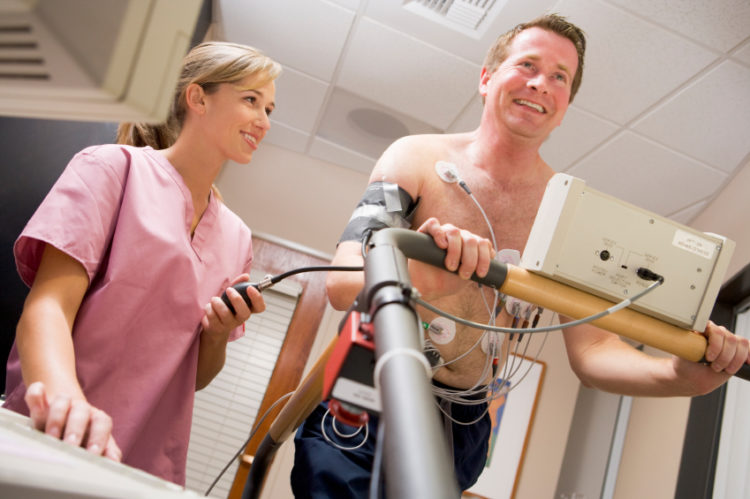Have you had your heart checked yet?
22 March 2017 / 9:38 am

As gym members, we exercise for a number of reasons but principally to improve our fitness, wellbeing and hopefully our health and quality of life. There are however a number of heart conditions that may lie dormant but which only become apparent when they present with collapse or cardiac arrest during exercise. Each week in the UK at least twelve seemingly fit and healthy young people die suddenly from conditions that they did not know they had.
Heart rhythm conditions and high blood pressure one in four adults and coronary heart disease is the commonest cause of sudden death in this age group. Inherited cardiac diseases are more common than many expect with about 1 in every 300 children or young adults having a potentially dangerous heart condition.
Structural heart problems such as cardiomyopathies and valvular heart disease and electrical abnormalities such as the long QT syndrome and Wolff-Parkinson-White syndrome can be detected early using simple heart screening techniques. A heart electrical tracing (ECG), a cardiac ultrasound scan (echocardiogram) and a focused questionnaire and examination will pick up most of the common heart abnormalities that can put people at risk. In some countries such as Italy it is mandatory for school children to have a heart check before they take part in athletic competition. Most professional sports people will have a much more detailed heart and health check before taking part in competition.
In the British Isles, organisations such as Cardiac Risk in the Young (http://www.c-r-y.org.uk) and Heart for Life (www.heartscreening.co.uk) provide high-quality, affordable heart screening led by medical experts. People who are found to have heart abnormalities usually require follow-on testing and some people require drug therapies and occasionally device therapy to help protect them. Data from the Italian heart research group suggests that screening can significantly reduce the rate of sudden death in athletes.
Alongside heart screening, more can be done to prevent deaths during exercise. The widespread adoption of automatic external defibrillators (AEDs) and greater training in cardiopulmonary resuscitation (CPR) is now really making a difference. Now (hopefully) most modern gyms will have an AED available and (hopefully) all personal trainers will have completed a basic life support course and know how to perform CPR.
So, have you had your heart checked yet? If you are young and active, have a look at one of the heart screening organisations and find a screening package that suits you. If you are over forty and haven’t visited your doctor recently then please do. Ask for a health check and work out your heart attack risk. Please learn how to perform basic life support and CPR. Hopefully you will never have to use your skills but one day you might just save someone’s life. Finally, find out where your nearest AED is; at home, at the office as well as at the gym. We all know where our fire extinguisher is but do you know where your AED is?
More Posts
7 May 2025
A digital health diary revisited
16 March 2024
Developing a new strategy for healthy Islanders
4 February 2024
A digital health diary for Jersey
27 December 2022
Utilising artificial intelligence in cardiology practice
12 June 2022
Under the bonnet – time for your heart’s MOT
12 March 2022
What is heart valve disease and what does that mean for me?
12 January 2022
Preventing heart disease using augmented digital health intelligence
1 October 2021
How heart health has been impacted by COVID-19
1 August 2021
The importance of the rhythm of your heart
21 June 2020
What is atrial fibrillation?
8 April 2020
Coronary heart disease and risk of heart attacks
11 January 2020
The Era of Immersive Health Technology
22 September 2019
The heart and stress
18 August 2019
Screening for Atrial Fibrillation and the Role of Digital Health Technologies
20 November 2018
Ectopic beats – how many count?
28 July 2018
How can immersive VR and AR technologies improve your physical and mental health?